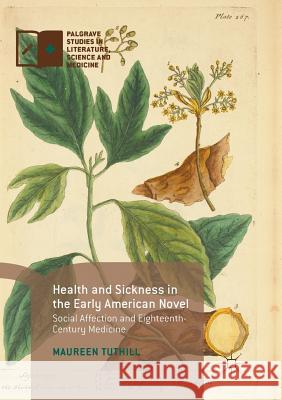Health and Sickness in the Early American Novel: Social Affection and Eighteenth-Century Medicine » książka
topmenu
Health and Sickness in the Early American Novel: Social Affection and Eighteenth-Century Medicine
ISBN-13: 9781349955671 / Angielski / Miękka / 2018 / 253 str.
Health and Sickness in the Early American Novel: Social Affection and Eighteenth-Century Medicine
ISBN-13: 9781349955671 / Angielski / Miękka / 2018 / 253 str.
cena 201,72 zł
(netto: 192,11 VAT: 5%)
Najniższa cena z 30 dni: 192,74 zł
(netto: 192,11 VAT: 5%)
Najniższa cena z 30 dni: 192,74 zł
Termin realizacji zamówienia:
ok. 22 dni roboczych
Bez gwarancji dostawy przed świętami
ok. 22 dni roboczych
Bez gwarancji dostawy przed świętami
Darmowa dostawa!
Kategorie:
Kategorie BISAC:
Wydawca:
Palgrave MacMillan
Seria wydawnicza:
Język:
Angielski
ISBN-13:
9781349955671
Rok wydania:
2018
Wydanie:
Softcover Repri
Ilość stron:
253
Waga:
0.35 kg
Wymiary:
14.7 x 20.9 x 2.3
Oprawa:
Miękka
Wolumenów:
01
Dodatkowe informacje:
Wydanie ilustrowane











